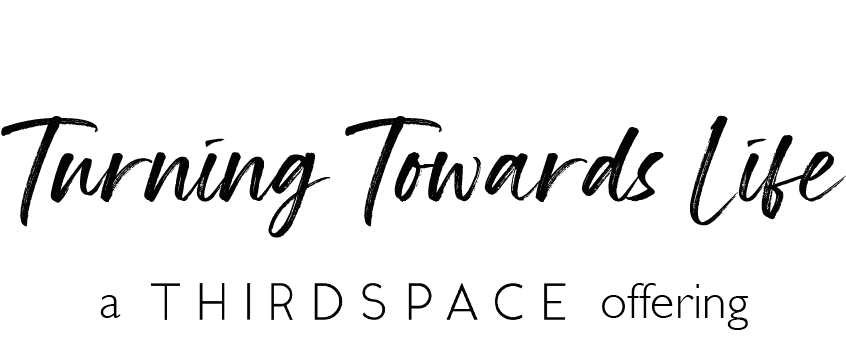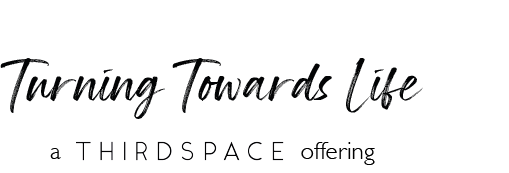Fear is Contraction, Episode 234
When we're afraid, but not acknowledging our fear, we're most likely to act out of line with our deepest intentions. It's easy from the midst of fear to try to assert our power and control - by being right or over-certain or dominating others - or to shrink away from our own dignity by saying 'yes' when something else is called for.
What if we could learn to notice and name our fear, to ourselves and others, and in doing so return to the qualities of wisdom, truthfulness, and reciprocity that give us the greatest chance of addressing the challenges of the moment at a right size and in right relationship with others?
This week's Turning Towards Life is a conversation about 'right sizing' ourselves so we can respond to the world with the depth that is the heritage of each one of us. It's hosted as always by Lizzie Winn and Justin Wise of Thirdspace.
You can find out more about the Thirdspace programmes we talk about this week on the Thirdspace website here:
Our two-day Foundations of Coaching programme on 25-26 April 2022
Our year-long Professional Coaching Course which begins in June 2022
Our new Leading from Essential Self programme from 25-27 May 2022
Here’s our source for this week:
Fear Is Contraction
Fear unites the disparate parts of our false selves very quickly. The ego moves forward by contraction, self-protection, and refusal, by saying no. Contraction gives us focus, purpose, direction, superiority, and a strange kind of security. It takes our aimless anxiety, covers it up, and tries to turn it into purposefulness and urgency, which results in a kind of drivenness. But this drive is not peaceful or happy. It is filled with fear and locates all its problems as “out there,” never “in here.”
The soul or the True Self does not proceed by contraction but by expansion. It moves forward, not by exclusion, but by inclusion. It sees things deeply and broadly not by saying no but by saying yes, at least on some level, to whatever comes its way. Can you distinguish between those two very different movements within yourself?
Fear and contraction allow us to eliminate other people, write them off, exclude them, and somehow expel them, at least in our minds. This immediately gives us a sense of being in control and having a secure set of boundaries—even holy boundaries. But people who are controlling are usually afraid of losing something. If we go deeper into ourselves, we will see that there is both a rebel and a dictator in all of us, two different ends of the same spectrum. It is almost always fear that justifies our knee-jerk rebellion or our need to dominate—a fear that is hardly ever recognized as such because we are acting out and trying to control the situation.
Fr Richard Rohr
Available at the Centre for Action and Reflection website
Photo by Ashley Batz on Unsplash

